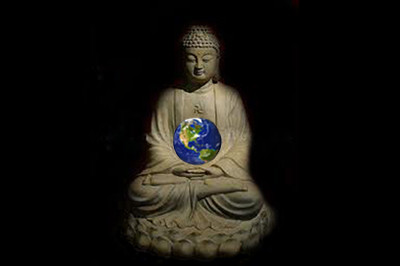Source: http://www.autocarhire.com/travelblog/featured/a-few-thailand-highlights/
Source: http://www.asia.com/flights-country-info/thailand
As we have discussed in the section Environmental Attitudes, this website will try to explore the environmental attitudes of Thailand. In any one country, it is impossible to say that everyone endorses either Preservation attitudes or Utilization attitudes towards the natural environment.
We can, however, try to understand which attitude the country is tending more towards.
Thailand’s Environmental Attitudes
Semi-structured interviews of seventy residents in Bangkok were conducted in 2007 to investigate the Wildlife Value Orientation (WVO) in Thai people. Although the value orientations derived from these study cannot be taken to represent environmental attitudes, they give us some indication of the environmental attitudes of Thai because attitudes arise out of general values and primitive beliefs (Clayton & Myers, 2009). Out of the eight WVOs emerging from the study, Caring and Human Safety were the two most frequently expressed ones. The third orientation that had a moderately high rate of frequency was Mutualism (Tanakanjana, & Saranet, 2007).
Caring is an orientation involving compassion and empathy toward wild life. Human Safety is an orientation involving concern for the threat wildlife poses to human safety. Mutualism is an orientation that reflects a belief that humans and wildlife should be able to coexist peacefully and that both are integrated with the natural world. Wildlife has rights just as humans do and nature should be respected as humans are (Tanakanjana, & Saranet, 2007). Therefore, it can be seen that Thai people generally do show concern for the environment and they do hold pro environmental attitudes.
In a study done by Ontakharai et al. (2008), a survey of 1000 undergraduate students’ environmental attitudes and religious outlook was done in Bangkok and Chiangmai, Thailand. It was found that the students generally had pro environmental attitudes and tend towards Preservation of the environment. About 92.6 percent believed that all organisms’ lives are previous and worth preserving. About 80 percent held the view that Nature must be preserved because it consists of a sacred and supernatural force. A significant majority also indicated support for pro environmental behavior (Ontakharai et al., 2008).
Unfortunately, however, the resources available that allow us to understand Thailand’s environmental attitudes are still rather limited. Like Malaysia, Thailand is a large country. Therefore we must understand that there will be a certain level of difficulty when it comes to seeking information regarding the whole country’s environmental attitudes.
Thus, I will apply the same method here by analyzing the factors influencing Environmental Attitudes to try and understand the environmental attitudes that the Thai people endorse.
Religion
Source: http://www.globalone.tv/profiles/blog/list?tag=buddhism
According to the Government’s National Statistics Office of Thailand, about 94 percent of the population in the country is Buddhist (Bureau of Demoncracy, Human Rights and Labor, 2006). This has implications on the environmental attitudes of the Thai people.
Source: http://www.examiner.com/buddhism-in-sacramento/budda-and-the-earth-photo
Buddhism is a strong advocate for protecting life and the living environment. In fact, it is one of the main basic laws set out by Buddha for his disciples to follow (Thich, 1996). Also, according to Buddha’s teachings, all life, including plant life should not be destroyed. Nature should be uninterfered with so that humanity may enjoy its presence (Kariyawasam, 2007). In addition, The Four Noble Truths and the pervasive theme of interconnectedness and interdependence of all things in existence advocated in Buddhism teach its followers the need and virtue of respecting and caring for the environment (Daniels, 2010).
Clearly, Buddhism preaches pro environmental attitudes and Preservation that may cause Thai people to endorse such attitudes towards the environment.
In a study done by Ontakharai et al. (2008), it was found that there was significant association between the 1025 Thai students’ religious outlook and all the measures of attitudes towards the environment. This demonstrates how Buddhism may be influencing environmental attitudes in Thailand.
Level of education
Research findings support the notion that the more educated are more concerned for the environment and place more emphasis on biocentric orientations than the less educated (Fransson & Gärling, 1999; Hines, Hungerford, & Tomera, 1987; Olofsson & Öhman, 2006; Theodori & Luloff, 2002; Vaske, Donnelly, Williams, & Jonker, 2001).
Let’s take a look at Thailand’s level of education.
Source: http://www.thai-blogs.com/2009/02/10/average-day-in-a-thai-school/
According to UNICEF (2012), Thailand’s youth literacy rate from year 2005 to 2010 is 98 percent while the percentage of Thai people enrolled into secondary schools from year 2007 to 2010 is 68 to 77. This gives us some indication that Thai people probably have some access to environmental messages and they are also equipped with the ability to comprehend them. However, their environmental attitudes still depend on the type of environmental knowledge available to them in Thailand.
From year 1997 to 2000, the Thai government introduced “Rung Arun”, or as translated into English, the “Dawn” project in more than 600 schools nationwide. The purpose of Rung Arun was to integrate the concepts of environmental education and energy conservation into the curriculums at primary and secondary schools in Thailand. Teachers were also provided training on how to carry out the programmes (Potar et al., 2001).
In 2010, an environmental education program organized by a non profit organization, Sustainable Smiles, was implemented at Wat Mongkol School at Nai Yang Beach, Phuket, Thailand. This program educated seventy children about the environment and environmental issues Thailand is facing. The students were also shown sustainable practices they can engage in to help protect the environment (Sustainable Smiles, 2010).
Environmental education has been integrated into both formal and non formal education programs in Thailand since 1977.
Hence, we can expect that the Thai people have inclinations towards pro environmental attitudes because they would have had access to knowledge about environmental issues and they would also have the capacity to understand them.
Time Perspectives
As mentioned in Environmental Attitudes, Several studies have found that a future time perspective shared a positive relationship with Environmental Attitudes (Collins & Chambers, 2005; Ebreo & Vining, 2001; Joireman, Lasane, Bennett, Richards, & Solaimani, 2001; Joireman, Van Lange, & Van Vugt, 2004; Strathman, Gleicher, Boninger, & Edwards, 1994).
The Thai people probably had a future time perspective. This could be inferred due to the religion they practice in Thailand. As mentioned above, Buddhism is the predominant religion in Thailand. And Buddhism can be considered a religion that endorses a future time perspective. It stresses the fleeing nature of the present and also advocates the transitory nature of present acquisitions and possessions (Weeramantry, 2007).
And since the Thai people practices Buddhism, they may follow the beliefs it teaches and hence endorses a future time perspective, which may contribute to their inclinations towards pro environmental attitudes.
Knowledge of environmental issues
Apart from all the environmental education programs in Thailand, Thailand also tried to increase the Thai people’s knowledge of environmental issues via campaigns. Here are a few examples of the campaigns in Thailand:
HP Green Youth Camp – Reuse & Recycle for our Planet Campaign
Source: http://www.thaipr.net/finance/357762
The Planet Competition: a competition in which students in Bangkok and Phuket show off their artistic prowess in the name of environmental responsibility.
Source: http://blog.amari.com/?tag=/Charity
Thailand Global Warming Awareness Campaign: More Trash, Result More
Source: http://www.coloribus.com/adsarchive/directmarketing-casestudy/yr-thailand-global-warming-awareness-more-trash-15024855/
If We Build Too Much, We Destroy Campaign
Source: http://www.coloribus.com/adsarchive/prints/iucn-jaguar-14789455/
After reviewing all these factors, we can expect the environmental attitudes of the Thai people to be pro environmental and tending towards Preservation of the natural environment.









